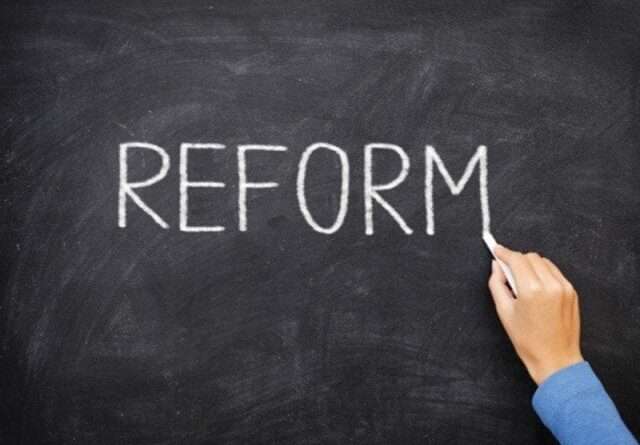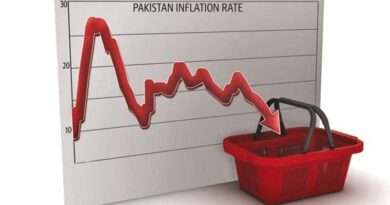Expert Predicts IMF Re-engagement Due to Pakistan’s FBR Performance and Economic Policy Failures
|
Getting your Trinity Audio player ready...
|
Introduction: Growing Economic Concerns in Pakistan
Pakistan’s economy is once again facing a critical juncture as successive governments, including the current administration, continue to focus on borrowing rather than implementing much-needed structural reforms. Economists and business leaders have expressed concerns over the state of the economy, citing poor performance in key areas like tax collection, domestic savings, and investments. Experts are warning that, without significant change in the country’s fiscal policies, Pakistan may be forced to approach the International Monetary Fund (IMF) again, potentially resulting in even harsher terms than before.
The Role of Government Policies in Economic Decline
Dr. Shahid Hassan Siddiqui, a renowned economist, highlighted the ongoing economic challenges that Pakistan faces due to the policies of both the federal and provincial governments. Despite the IMF’s involvement in stabilizing Pakistan’s economy, Siddiqui noted that structural issues remain unresolved, primarily due to an outdated and ineffective tax system.
According to Siddiqui, the government’s focus on acquiring more loans instead of fostering domestic investments has exacerbated the country’s fiscal problems. This approach has led to a situation where remittances from abroad are exceeding exports, signaling that Pakistan’s reliance on external funds has become unsustainable.
Furthermore, the lack of investment in vital sectors like education, healthcare, and social welfare has deepened the divide between the wealthy elite and the rest of the population. Siddiqui pointed out that the Federal Board of Revenue (FBR) has been consistently underperforming in its tax collection efforts, which further strains Pakistan’s ability to meet its economic goals.
The Role of FBR and Tax Collection Shortcomings
One of the major factors contributing to the deteriorating economic situation is the FBR’s inability to meet its tax collection targets. Dr. Siddiqui emphasized that Pakistan’s tax collection is significantly lower than its potential, and this shortfall has become a critical issue for the economy.
In recent statements, Prime Minister Shehbaz Sharif admitted that the FBR had failed to collect Rs15,000 billion less than its tax collection potential. Siddiqui’s own research indicates that the total shortfall is even higher, reaching Rs22,000 billion, which he calls the “Achilles’ heel” of Pakistan’s economy. Without proper tax reforms and strategies to expand the tax base, the economy will continue to struggle, leading to the possibility of another IMF bailout.
The Potential for Another IMF Bailout and Mini-Budget
The prospect of Pakistan having to approach the IMF once again for financial assistance is becoming increasingly likely. According to Dr. Siddiqui, the current state of the economy, along with the failed policies of the government, suggests that the country may soon have to negotiate a new bailout package with the IMF after the expiration of the current $7 billion Extended Fund Facility (EFF) in 2025.
This new IMF agreement could come with even stricter conditions than the previous one, as the international financial landscape is rapidly changing. Siddiqui emphasized that Pakistan must act decisively now to address its economic challenges before the situation worsens.
Moreover, leading industrialist and entrepreneur Muhammad Farooq Shaikhani warned that a “mini-budget” might be announced in the near future to address the growing fiscal deficit. However, he stressed that such a budget should prioritize the needs of small traders and industries, which have been severely impacted by rising energy costs.
Feudal Interests and Their Impact on Economic Growth
A significant issue, according to both Dr. Siddiqui and Shaikhani, is the influence of feudal interests on Pakistan’s economic policies. These interests have led to the continuation of policies that benefit the elite while neglecting the needs of the broader population. In particular, the banking sector has flourished at the expense of the common man, with commercial banks making significant profits by investing in government securities rather than providing loans to businesses, industries, and agriculture.
The Strain on Small Traders and the Industrial Sector
Small traders and industries have been especially hard hit by the government’s policies, particularly those relating to energy costs. The rising prices of electricity and gas have significantly increased the operational costs for businesses, making it difficult for them to remain competitive. Shaikhani urged the government to implement targeted relief for these sectors to ease the financial burden on small traders and industries.
Furthermore, he called for policies that would stimulate exports and provide relief to the industrial sector, which is struggling with high utility costs and a lack of financing options. Without such measures, Pakistan risks widening the gap between the government’s economic targets and reality.
The Government’s Response and Proposed Tax Reforms
In an attempt to address the country’s fiscal woes, the Minister of State for Finance, Ali Pervaiz Malik, recently announced that tax notices would be sent to the 5,000 wealthiest individuals who have failed to file tax returns. The government expects to collect around Rs7 billion through this initiative. However, the effectiveness of this strategy remains uncertain, and it remains to be seen whether such measures will lead to meaningful improvements in tax collection.
Conclusion: The Urgent Need for Economic Reforms
Pakistan’s economic future hangs in the balance as the country grapples with poor tax collection, rising debt, and a lack of investment in key sectors. Economists and industry leaders agree that the current approach is unsustainable, and without serious reforms, Pakistan may be forced to seek additional financial support from the IMF. It is clear that the country needs to address its tax shortfall, prioritize industrial growth, and implement policies that support both small and large businesses. Without such steps, Pakistan’s economy will continue to face major challenges in the years ahead.
Frequently Asked Questions (FAQs)
1. Why is Pakistan’s economy in trouble?
Pakistan’s economy is struggling due to poor tax collection, reliance on loans, and a lack of investment in critical sectors like education, healthcare, and industry. These issues are compounded by the influence of feudal interests on economic policies.
2. What is the role of the FBR in Pakistan’s economic challenges?
The FBR plays a crucial role in collecting taxes for the government. However, its inability to meet tax collection targets has resulted in a significant shortfall in revenue, which has contributed to Pakistan’s ongoing economic difficulties.
3. Will Pakistan have to approach the IMF again?
Given the current economic challenges and the failure to address key issues like tax collection and domestic investment, there is a strong possibility that Pakistan will need to approach the IMF again for another bailout.
4. What are the potential consequences of another IMF bailout?
A new IMF bailout could come with even stricter conditions, including further austerity measures, which may increase the financial burden on the Pakistani population and slow down economic growth.
5. What reforms are needed to improve Pakistan’s economy?
Pakistan needs comprehensive reforms in its tax system, investment policies, and industrial growth strategies. The government must prioritize tax collection, reduce reliance on loans, and implement measures that support small businesses and exporters.
ALSO READ:
https://skipper.pk/2024/11/17/up-to-37-return-on-equity-likely-psxs-promising-future/




